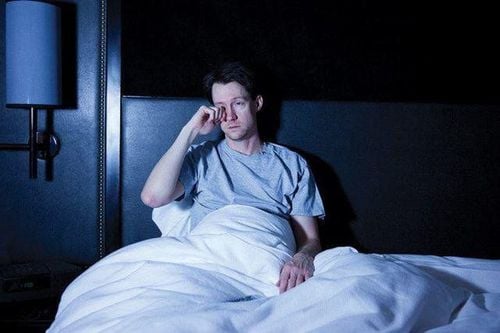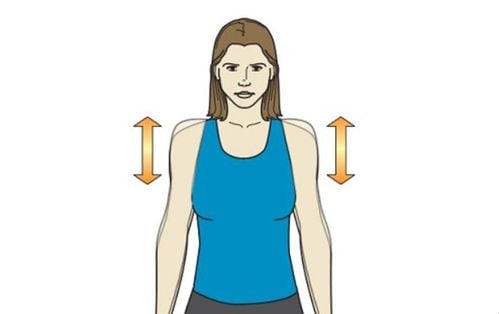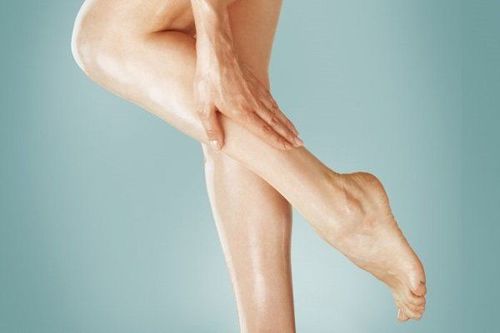1. Are hypnic jerks harmful?
Hypnic jerks are characterized by sudden, involuntary muscle contractions that occur during sleep, often accompanied by feelings of anxiety or fear. Frequent episodes can significantly impair sleep quality, subsequently contributing to various health problems such as fatigue and excessive daytime somnolence.
These sleep starts are not considered a neurological disorder but rather sudden muscle contractions, usually occurring at the onset of sleep. This phenomenon is more prone to occur when the transition from wakefulness to sleep is overly rapid. Physiologically, heart rate and respiration normally decrease gradually during sleep onset; however, in cases of extreme fatigue, this physiological deceleration can happen rapidly, prompting the brain to react with a hypnic jerk.
The severity of sleep starts/hypnic jerks varies from person to person; some experience very mild twitches that may go unnoticed, while others experience more severe jerks that disrupt their sleep and can even cause them to wake up in the middle of the night.

2. Why do I experience hypnic jerks?
The precise etiology of hypnic jerks (sudden awakenings during sleep) is not fully elucidated. However, several studies suggest the following potential contributing factors:
- Incorrect sleeping posture: An incorrect sleeping posture can be interpreted by the brain as a potential threat to the body, hindering the progression into deeper sleep stages and subsequently precipitating hypnic jerks.
- Stress: Excessive workload or academic pressure can induce states of anxiety and stress. These psychological factors can be relayed to the brain, contributing to the occurrence of sleep starts.
- Caffeine intake: The consumption of caffeine-containing beverages, such as coffee and tea, can induce insomnia and fatigue in susceptible individuals, thereby increasing the propensity for sleep starts.
- Consumption of fatty foods, alcohol, and carbonated drinks: These can make it harder to fall asleep, leading to sudden jerks during sleep.
- Calcium deficiency: Insufficient calcium can disrupt neuromuscular function, leading to more frequent muscle contractions during sleep and increased nerve activity, thus triggering jerks. Deficiencies in other nutrients like magnesium and B12 can also contribute.

3. Preventing hypnic jerks
The following strategies can be implemented at home to minimize the occurrence of hypnic jerks:
- Getting 7-9 hours of sleep per night, maintaining a consistent sleep schedule.
- Refrain from engaging in physical activity within approximately 6 hours of bedtime.
- Relaxing before sleep with warm baths, massages, or reading.
- Sleeping in recommended positions, such as on your side or back.
- Creating a suitable sleep environment regarding lighting and bedding.
- Limiting carbonated drinks, alcohol, and caffeine before sleep.
- Maintaining a relaxed, low-stress state before bed.
- Ensuring adequate intake of essential vitamins and mineals like B12, calcium, and magnesium in your daily diet.
- Limiting fatty foods and prioritizing a diet rich in fiber and fruits.
Hypnic jerks are quite common and can often affect a person's quality of life. If positive lifestyle changes do not improve the condition, patients should consult a doctor for examination, diagnosis, and a more accurate determination of the cause of these hypnic jerks. Follow Vinmec International General Hospital's website for more health, nutrition, and beauty information to safeguard the well-being of yourself and your family.
To arrange an appointment, please call HOTLINE or make your reservation directly HERE. You may also download the MyVinmec app to schedule appointments faster and manage your reservations more conveniently.








